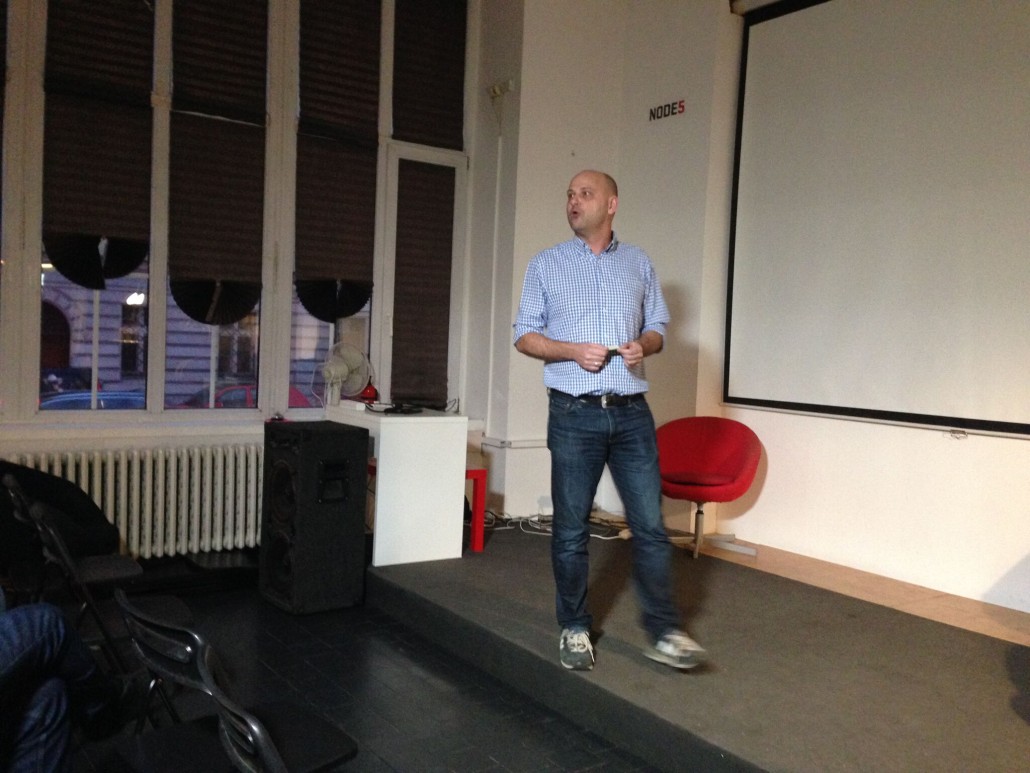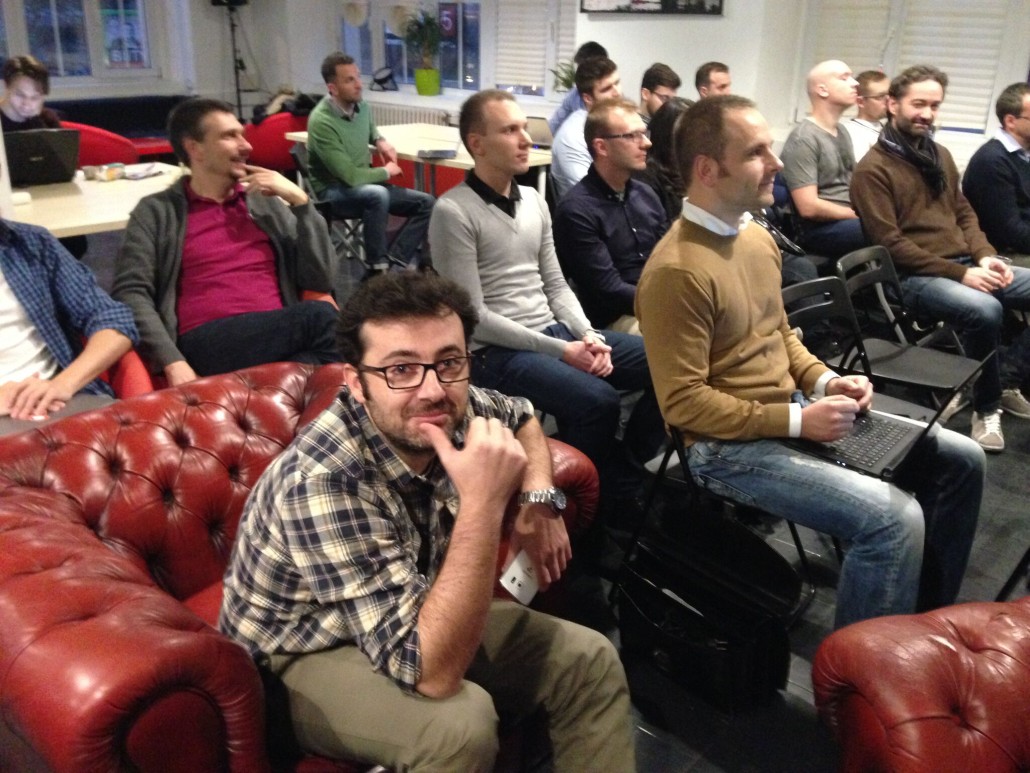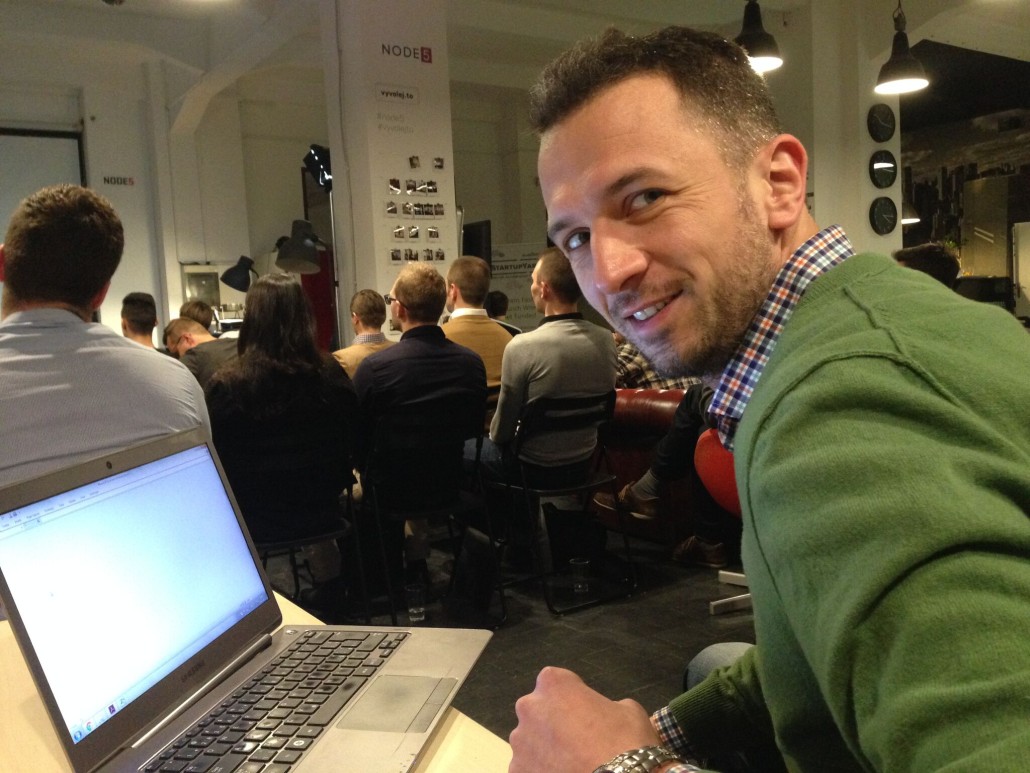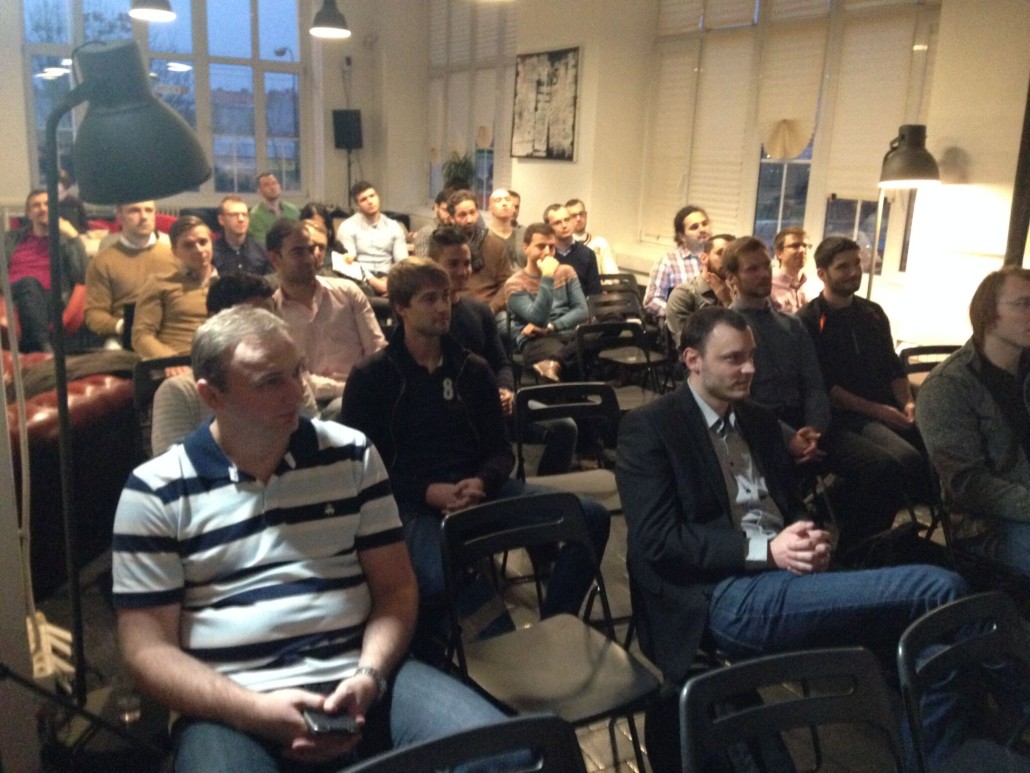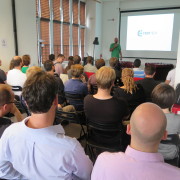StartupYard’s open call for 2016 has attracted more applications than we’ve ever received before. More importantly, it has attracted more high quality applications than we have ever seen.
And that makes our job both exciting and difficult. As has been our pledge since the beginning, we’re going to try to be as transparent as possible about what this process is like for us, and how we can possibly hope to decide on only 7-10 startups out of a pool of over 300 applicants.
It’s Really, Really, All About the Team
We say this so much, but I don’t think startups ever really believe us. I like to put it this way. Imagine StartupYard had a grading system for Startups. Now imagine that 70% of that grade was the team, and 30% of that grade was the product, with just 75% would be a “passing” grade. We would want a team that was scored at 75%.
While we don’t actually judge startups this way (how do you exactly grade a product or a team?) We do try to think this way. If a team really blows us away with their ambition, their poise, their market knowledge, and their confidence in what they’re doing, then we can overlook serious reservations about the product they’re working on.
At the same time, a team that raises a lot of question marks can potentially blow us away with a killer idea- although that pretty much never happens. We don’t look at product demos or pitch decks, so even when we’re hearing about the idea, we’re really hearing about the team; about the team’s ability to draw us into their ideas and keep our attention and imaginations going along for the ride.
It’s Not a Pitch, It’s a Conversation

When we talk with our shortlist of founders who make it to the semi-final round of the StartupYard selection process, we give them only 3 minutes to pitch their startup, and 12 minutes to answer questions. We don’t allow them any visual aids (other than their own faces and hands), and we don’t look at any charts or figures they might try to get us to read.
Several teams were surprised, and asked us why they couldn’t give a “pitch,” the way that startups have been trained to imagine them. Their charts and graphics were very important to making their point.
Except, they really aren’t. Pitch decks are great for talking to a huge audience with a range of interests, who may or may not know what you’re talking about half the time. And slide-decks are great if you need someone to quickly understand what you do.
But when you really need to get to know people, and if you want to work with them every day for 3 months, then these things are at best distractions. At worst, they push the conversation down a rabbit hole of irrelevant details.
Most of what’s in a pitch deck isn’t real, particularly at an early stage. It’s aspirational. three quarters of startups who applied to StartupYard this year are not even incorporated, so revenue projections for 2 years aren’t based in any reality. But that’s only one part of what we need to know about teams. Aspiration is important, but perspiration is also vital. We need to know what teams have actually done, what they actually know, and what they are actually working on.
Trying Too Hard
One of the hardest things about this process is that people come attached to ideas.
Ideas by themselves can be attractive or not, and people can be charming and interesting, or not. But evaluating a startup forces us to evaluate a person in the context of an idea, and an idea in the context of a person.
This is why we do interviews. On paper, an idea can be deeply inspiring and exciting. Or it can be deathly boring and played out. But the person attached to an idea is the one who will bring life to it, so that person has to fit the idea well. And figuring out how a person fits with an idea, much less how that person and their idea fit in with us, is a scary thing to have to do.
We are not only deciding whether we believe in people and their ideas. We have to also somehow decide whether we are going to be able to help them. The last thing we want to do is to take a startup, and be a blocker to its success by wasting its time and energy. Our definition of success is one thing- but for many companies, that definition is unrealistic.
We get many notes following rejection letters, asking for feedback: “what did I do wrong?” “What could I have done to succeed?” These are in many ways the wrong questions to be asking. Not joining an accelerator is the right outcome for a team that is not going to benefit from being here. We don’t want to be tricked. We want applicants to show us who they are, and give their best effort, but not be who we want them to be, just to get in.
We also get notes saying: “we’ll try harder next year.” I can’t disparage those people. They have the right attitude. But at the same time, we have to be looking for people who aren’t trying too hard, to be the kinds of people we want to work with. Ultimately, they have to be themselves, and play to their own strengths, or they won’t be able to grow professionally, or as a company.
We often meet with startup founders who we believe are perfectly capable of being successful, but who should not be running global startups. These entrepreneurs play to their weaknesses by trying to overextend themselves, and their ideas. But that is what they think they should be doing, because so much of the startup culture is focused on the rare exceptional people who can play at an international level. Most never will, and not because they aren’t trying hard enough.
Trying often seems to get in the way of doing. Trying harder can be an excuse for not changing something you don’t want to change, either about the idea, or about yourself.
For example, we meet startup founders, many of them young, but some who aren’t, who want to compete in global markets that they clearly don’t understand well. Often we don’t even have to know much about those markets ourselves to know that they don’t either. We have to rely on instincts, and a spidey sense for bullshit. We have to listen for red-flags in a pitch: “nobody else in this market does this,” or “we have no real competitors in that.”
These are the kinds of projects that can sound really good on paper, because the founders have spent time building a case for why the business will work. But they haven’t spent time really challenging their own assumptions, so when they’re faced with questions they can’t answer, they tend to try and change the subject, or just plead ignorance. These kinds of founders end up sounding like an actor who has lost his script- something very polished and rehearsed quickly turns into an uncomfortable squirm-fest (for us as well).
It’s not that their ideas are bad either– sometimes founders come to use with great ideas that they just aren’t ready to execute. We also meet founders who just don’t have the skills they will need to do what they want. These startups often reveal themselves in their choice of project, and how they talk about it: “we found an easier way to do this,” or “nobody ever combined X and Y before… so that’s what we’re doing.”
These startups are often looking for someone to save them from themselves. They’ll say they want help “figuring out” what to do next, but in reality, they’re looking for someone to tell them what to do. As an accelerator, our job is to point startups in the right direction, not push them over the line.
And I don’t think this happens because people are lying to us. I very rarely get the sense that applicants are being basically dishonest. More often, they’re being dishonest with themselves. They may be engaging in wishful thinking and hand waving about the challenges they face, or or maybe they’ve been too lazy or in denial to do their research. Whatever it is, one of the most common failings that a startup demonstrates during our interview process is that they have ignored their own doubts, and so haven’t really been able to overcome them constructively.
Leadership: If and Wow
“If you can trust yourself when all men doubt you,
But make allowance for their doubting too; “
from If–, by Rudyard Kipling
Cedric Maloux, our Managing director, put this to me very succinctly this week. He said: “There is a very big difference between ‘if’ and ‘wow.’”
It seemed that interviews tended to end one of two ways. Either we would hang up with the candidate and say: “if he’s right, then this is a pretty good idea,” or “if the team can do this, then they can definitely be successful,” or, we would hang up and simply say: “Wow.”
The “wow” teams didn’t leave many questions for us about their abilities, their market knowledge, or their passion. The “if” teams gave us reasons to doubt them in at least one of those areas.
Most companies have their own “ifs.” That’s not a failing, but we go into every interview hoping for a “wow” team. And what that usually comes down to is a sense of strong, clear leadership.
The above couplet is from a legendary poem by Rudyard Kipling about leadership. The poem has enjoyed a lasting impact in schools, and among people who talk about great leaders and visionaries. You have probably encountered it before somewhere.
Its ideas have also been thoroughly absorbed into the modern Startup culture. One often hears words very similar to these when Steve Jobs, or Elon Musk, or some other figure is under discussion.
We hear it all the time: “I know myself, and I know I can be a success. I don’t doubt myself.” But founders can easily confuse doubting oneself, and refusing to listen to the doubts of anyone else. If you aren’t a strong leader, you may try to seem strong by refusing to be dissuaded by doubters.
But the second line of the couplet is possibly among the most under-appreciated in literary history. Doubts, Kipling points out, are an important part of leadership. If you can’t engage with and answer doubts, then you can’t lead. People don’t believe in leaders who don’t allow themselves to be questioned, and the strongest leaders listen carefully to input, and make hard decisions to change direction when that input is convincing.
So these “wow” teams are really the ones where the doubts have been, and are being considered and worked on. These are teams led by founders who are aware of what they can do, what they will need to do, and what it will take to do it. In short, startups led by real, natural leaders.
And, not coincidentally, that’s the kind of team we can also help the most, because they will let us help them.
